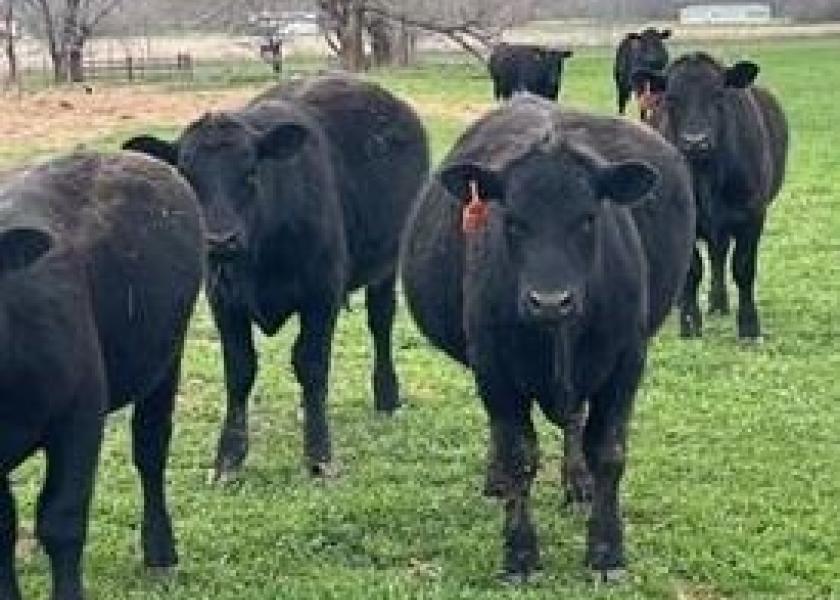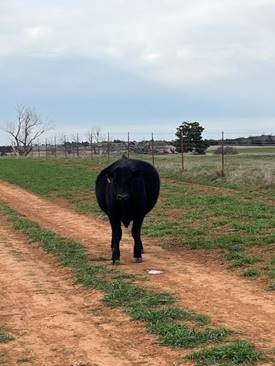Be Prepared, Wheat Pasture Bloat on the Rise

Last month we sent out an article “Watch for Wheat Pasture Bloat.” Since then we have been getting reports of bloat in calves grazing wheat and other small grain pastures. Growing conditions improved for these pastures that have been grazed short all winter with regrowth that is all highly digestible leaf. We have also had some late winter frost events that can damage the cell walls in the new growth, releasing the cell contents for rapid availability in the rumen. These plant fractions are the most bloat provocative and can very quickly cause bloat in grazing calves.
The pictures above show weaned calves on triticale pasture in a bloat outbreak. Bloat occurred rapidly and did not affect all calves to the same extent. Death can occur rapidly with severe bloat cases.
Calves were gathered and penned with water and dry hay. The calf above was brought all the way from the field to the pens before succumbing to bloat.
Relief can be equally rapid. This calf was severely bloated, but returned to normal soon after a pressed block containing Bloatguard (Poloxalene 6.6%) and hay were provided.
• Don’t wait until the bloat outbreak occurs, have some type of block, supplement, or mineral on-hand that contains Bloatguard. Not all feed stores carry this item and you may have to drive to another town to find it.
• Feed calves a few days a week to keep them coming up to troughs so they can be easily gathered if bloat occurs.
• Mineral or supplements providing the ionophore monensin decrease the incidence and severity of bloat. This will make it more manageable to identify bloat outbreaks before they cause death-losses and give time to take corrective measures.







